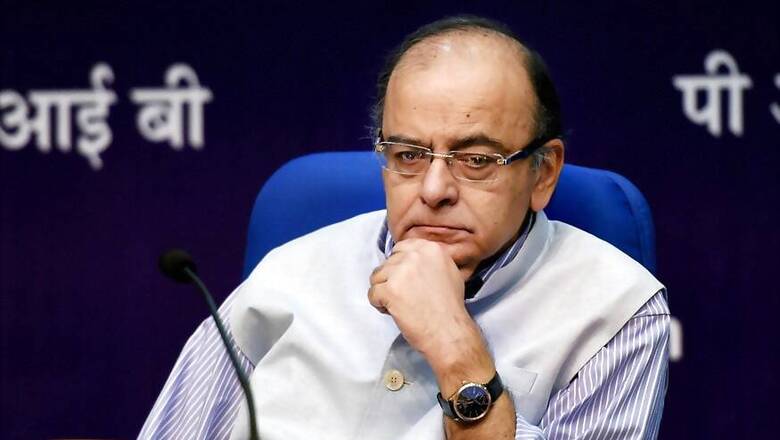
views
Washington/New Delhi: India has reiterated the strong case for realigning the country quota shares of the International Monetary Fund (IMF) in line with changed global economic realities, an official statement said on Sunday.
"Union Finance Minister Arun Jaitley emphasized that there is a strong case for realigning quota shares with the changed global economic realities," the Finance Ministry said in a release in New Delhi on Jaitley's address at a closed door meeting of the International Monetary and Finance Committee (IMFC) in Washington on Saturday.
IMFC is a key body providing strategic direction to the work and policies of the IMF.
"While expressing India's extreme disappointment with delay in completion of 15th General Review of Quota (GRQ) by Annual Meeting of 2017, the Finance Minister emphasized that the Fund should strictly abide by the new deadlines set for completing the 15th Review," it said.
Jaitley is currently on official tour to Washington to attend the annual meetings of the IMF and the World Bank and other associated meetings.
He also participated in the plenary meeting of the Development Committee, which is the ministerial-level forum of the World Bank Group and the IMF for inter-governmental consensus building on development issues.
"The meeting focused on the 'Forward Look'' exercise carried-out by the World Bank and discussions on the Dynamic Formula of Shareholding of member countries in IBRD (International Bank of Reconstruction and Development as the World Bank is officially known)," the statement added.
Addressing the plenary, Jaitley warned about the risks of low and negative interest rates and "significant loan impairments" in the banking system owing to global financial stability, calling for for "delevaraging" balance sheets to spur growth.
"Disorderly deleveraging of private debt could also impact growth. In order to guard against these risks, policy frameworks would have to be strengthened by accumulating buffers and deleveraging balance sheets," he said.
Jaitley also said global financial stability appears to have improved with easing external financing conditions and some recovery in commodity prices.
"However, risks to global financial stability persist because of low and negative interest rates, overhang of private debt and significant loan impairments in the banking system," he added.


















Comments
0 comment